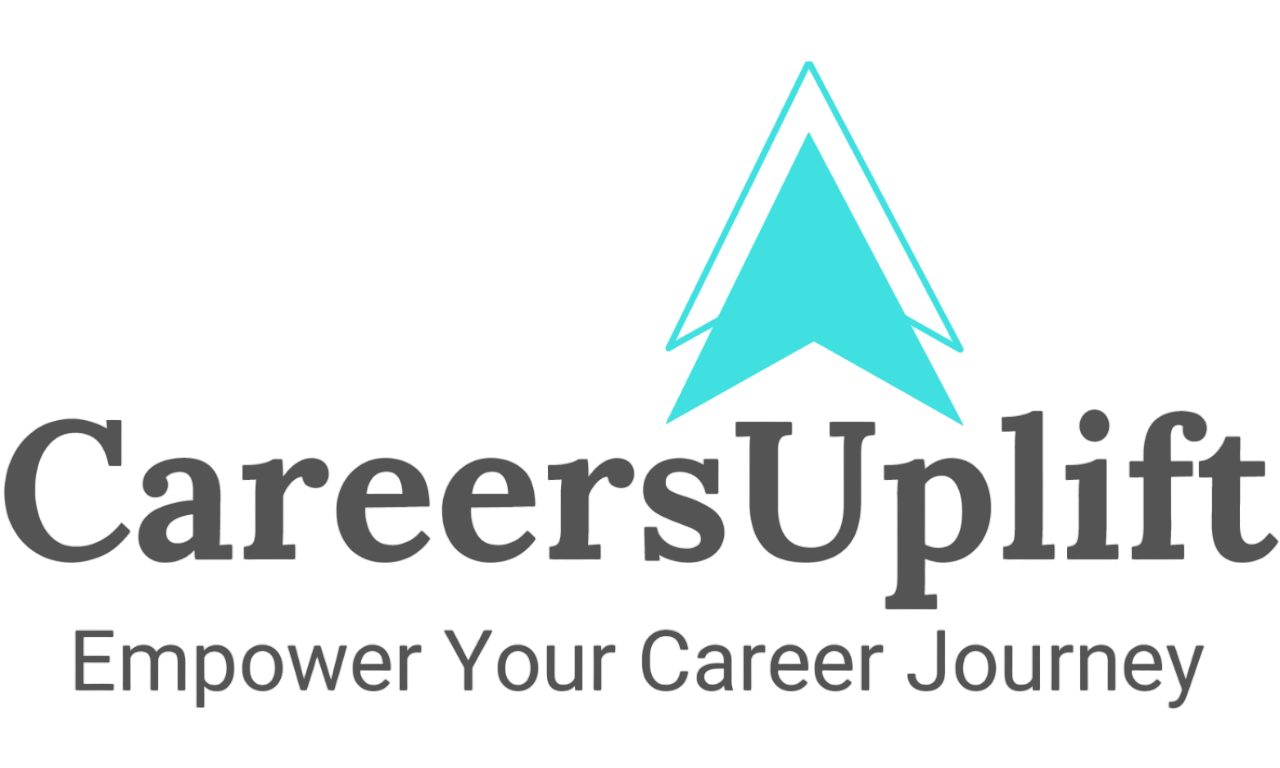“Choose a job you love, and you will never have to work a day in your life.“
Confucius
Choosing a career path that is right for you is one of the most critical decisions you’ll ever make. It’s a choice that can shape your future, influence your happiness, impact your financial stability, and define your professional success. However, with so many options to choose from, how do you find a career path that is right for you? It’s a task that can be overwhelming and challenging.
In this blog post, we’ll explore essential steps and strategies to help you navigate your career choices and discover a path that aligns with your strengths and interests. Additionally, we’ll also understand what a career path is, the importance of choosing the right path at an early stage, and the challenges faced by you in making career-related decisions.
Let’s dive into it!
What is a Career Path?
A career path is more than career options or a series of jobs; it’s a journey that involves choosing the right streams and subjects at school and college, choosing the right college, choosing to do higher studies after graduation, acquiring additional skills, and getting a job.
This journey requires planning and decision-making at various stages starting from high school. For students, it begins with exploring your interests, identifying strengths, and researching multiple professions. This stage is about understanding what excites you and how it can translate into a fulfilling and meaningful career.

For young professionals, a career path includes gaining experience, skill development, continuous learning, and navigating different roles to achieve long-term career goals.
Think of it as a roadmap that guides you to your dream career destination. It involves making informed choices, setting achievable goals, and evolving continuously.
By understanding and plotting your career path, you can ensure that each step brings you closer to a rewarding career.
Importance of choosing the Right Career Path

Choosing the right career path early on is crucial for setting the foundation of a fulfilling and successful career. At an early stage, students have the advantage of time to explore their interests, understand their strengths, and align their educational pursuits with their career aspirations.
This proactive approach removes confusion, prevents aimless drifting and paves the way for a more focused and goal-oriented academic and career journey.
One important benefit of early career planning is the ability to make informed decisions about education and skill building. Knowing your desired career path helps you choose the right subjects, study stream, and co-curricular activities that enhance your qualifications and profile.
Having clarity on your career path early on not only helps remove any confusion or ambiguity but also brings in focus and concentrated effort in the chosen direction. This enhances the chances of success in the chosen career.
Early career guidance also provides a competitive edge in the employment market. With a clear career path, students and young professionals can strategically build their profiles with relevant experiences, internships, and projects that make them stand out to potential employers. This not only increases their chances of landing their desired job but also accelerates their career growth.
Moreover, choosing the right career path early can lead to higher job satisfaction and professional fulfilment. When individuals pursue careers that align with their interests and strengths, they are more likely to enjoy their work, stay motivated, and achieve excellence. This alignment reduces the likelihood of career boredom, dissatisfaction, constant job-switches, and overall unhappiness, which are common issues many professionals face.
Here are the benefits of choosing the right career path early:
- Informed decisions about education choices and skill development.
- Replaces confusion and ambiguity with focus and concentrated effort.
- Enhances the chances of success in chosen career.
- Provides a competitive edge in the employment market.
- Accelerates career growth.
- Leads to professional fulfilment and satisfaction.
By choosing the right career path and taking the necessary steps early on, students and young professionals can ensure that they not only meet their professional goals but also achieve personal happiness and fulfilment.
Challenges faced by Students in choosing the right Career Path

Choosing the right career path is a challenging process for both students and parents.
Understanding these challenges is crucial for making informed decisions and finding effective solutions.
Let’s look at some of the challenges faced:
Information Overload
The humongous amount of information available can be overwhelming and confusing, making it difficult to filter out relevant data.
Lack of Guidance
Many students and parents lack access to quality career guidance and counselling, leading to misguided career choices.
Lack of Resources
Students and parents often do not have easy access to or even awareness about the various resources and tools such as psychometric assessments that can be used for effective career decisions.
Pressure and Expectations
Societal, family, and peer pressures can heavily influence career decisions, often leading to choices that may not align with the student’s inherent interests and strengths.
Unawareness of Options
Lack of awareness of the wide range of career options including the new age ones can result in students pursuing the traditional or popular career paths rather than exploring diverse opportunities.
Financial Constraints
Financial limitations can restrict career options, leading to the selection of career paths that may not require significant investment but also may not align with the student’s interests and skills.
Self-Doubt and Fear of Failure
Many students struggle with self-doubt and fear of making wrong choices, which can affect decision-making and lead to poorly thought-out choices.
Rapid Changes in the Job Market
The constantly evolving job market and technological advancements can make it challenging to predict which careers will be in demand in the future, adding to the complexity of choosing the right career path.
Understanding the above challenges not only prepares you to tackle them but also underlines the importance of exploring effective strategies and tips to choose the right career paths. With the right guidance and approach, these challenges can be converted into opportunities for discovery and growth.
10 Essential Steps for choosing the Right Career Path

1. Self-Assessment
Embarking on the journey to find the right career path should begin with a deep understanding of yourself. Self-assessment is the foundation upon which you build your career decisions. It helps you understand what you want in your career.
Interests, Strengths, Values
Reflect on what excites you, what you are passionate about, and what you enjoy doing. What activities make you lose track of time? Identifying your Interests and passions and aligning your career path with them can lead to fulfilling careers.
Identify your Strengths, your inherent abilities and skills. Are you good at problem-solving, working with technology, or communicating with people? Your aptitudes can guide you to careers where you can excel.
Consider what you care about and what matters most to you. Do you value creativity, integrity, helping others, or innovation? Aligning your career with your values ensures long-term satisfaction and motivation.
Tools and Methods of Self-Assessment
There are various career assessments that can help you identify your strengths, aptitude, areas of interest and personality. Go for any standardised psychometric assessment that has been rigorously tested and has proven results.
Use the services of professional career coaches who will guide you in interpreting your career assessment report and provide deeper insights into your aptitude, interests, and personality. They will help you align your career paths with your assessment findings.
CareersUplift offers various online psychometric assessments to meet the different needs of students from class 8 to post-graduation. Our 5-dimensional Career Assessment provides the best-match career recommendations by using advanced scientific technology and analysing data from millions of students. Our Ideal Career Test is suitable for both students and working professionals and will help identify the right career options for you.
There are several other tools like the Myers-Briggs Type Indicator (MBTI), Holland Code (RIASEC), Career Clusters Interest Survey, Life Values Inventory, and others that can be used for self-assessment.
By understanding your interests, skills, and values, you can make informed decisions about your career path. This self-awareness is the first step toward a fulfilling and successful professional journey.
2. Research Career Options

Understanding the vast landscape of career options is crucial to choosing the right one that aligns with your interests and strengths.
Researching the wide array of career options available can be an exciting journey of discovery.
Use online resources, career exploration tools, and search engines to gather information about various careers. CareersUplift’s extensive Career Library is one tool for researching different career paths.
Network with professionals working in fields that interest you. Reach out and ask them about their work responsibilities, career prospects, industry trends, skills required, and the challenges they face.
You can also do job shadowing by spending a couple of days observing professionals at work. Such real-life experiences can provide useful insights beyond what you can find online.
Attend career fairs and events where you can interact with industry professionals and gather information about different careers.
By thoroughly researching career options, you can choose a career path that aligns with your skills, interests, and values.
3. Seek Professional Career Guidance
Seeking professional career guidance from certified career coaches and counsellors is crucial to choosing the right career paths.
This can significantly impact your career journey from education choices to self-assessment, and choosing appropriate career options.

Career Coaches and Counsellors
Career coaches provide personalised guidance based on your unique interests, skills, and values. They will help you identify career paths that align with your strengths and passions.
Leveraging their deep knowledge and expertise of various industries, career coaches offer insights into potential career paths, educational requirements, and job market trends.
They are also trained in self-assessment tools that help them understand your unique interests, aptitude, and personality.
With their support, you can set realistic and achievable career goals, creating a clear roadmap for your future.
Their expertise will guide you in making informed decisions and choices at every step of your career journey.
You can also seek guidance from your teachers, and professionals, working in your chosen field.
Mentorship
Mentorship offers continuous guidance and support to ensure you stay on track in achieving your education and career goals.
Career coaches with industry experience offer mentorship, that helps you develop and implement a career plan, set goals and receive continuous guidance.
It helps you navigate challenges that come along, and make informed decisions throughout your career journey.
Professional career guidance provides a strong support system and gives you confidence and clarity in your career journey. It ensures that your education and career choices are well-informed and aligned with your passions and strengths.
4. Understand Job Market Demand
Understanding job market demand and evaluating future prospects of the career fields of your interest is crucial in making the right choice.
Demand for Career Paths
Research the current demand for the careers you are considering. Use resources such as industry reports and job market analyses to understand the growth potential of various fields.
Use online resources such as LinkedIn, and Glassdoor to understand various job opportunities, roles, necessary qualifications, and career trajectories.
Network and engage with professionals on platforms like LinkedIn to gather first-hand information about job market trends, opportunities, growth prospects, and salary potential in your fields of interest.
Future Prospects
Staying informed about industry trends, emerging fields, and evolving job market demands will ensure that you choose a career path with future potential and long-term viability.
Follow industry news through reliable sources like industry-specific journals and reports, websites of industry bodies such as FICCI and CII, professional associations, and government reports.
Consider factors such as technological advancements, economic shifts, and societal changes that could impact job availability in future.
Understanding job market demand and future prospects ensures you make informed decisions, aligning your career choices with opportunities for growth and stability.
5. Evaluate Education and Training requirement

Evaluate the educational and training requirements for the career fields of your interest.
Look for specific skills, that are in demand in your desired fields and that you’ll need to learn.
Necessary Qualifications
Identify the standard qualifications and the specific degrees, diplomas, or certifications needed for your desired career. Research the academic path you’ll need to pursue, including the streams and subjects.
Research the accredited colleges and institutions that offer the required programs as accredited qualifications are recognised by employers.
Understand the time and financial commitments involved, in pursuing the required education and qualifications.
Skill Building
Acquire the necessary and additional skills that complement your formal education by doing online courses on platforms such as Coursera, Udemy, and others.
Attend workshops and obtain certifications in specialised areas to stay updated with industry trends and technologies.
Adopt a mindset of continuous learning and improvement to stay ahead in your career.
Evaluating education and training requirements helps you understand the necessary qualifications and academic rigour needed for pursuing your desired career paths, thereby helping you choose the right career path.
6. Gain Experience
Gaining industry experience through internships, projects, and part-time jobs will help you get a practical understanding of your desired career fields.
Internships and Part-Time Jobs
Look for internships and part-time jobs to gain practical experience in your chosen field. They will provide you with real-world experience in your field and a deeper understanding.
It will also help you develop professional skills, build your profile, and make professional connections in your desired field.
They also offer networking opportunities by helping you connect with industry professionals, potentially leading to valuable references and career opportunities.
Volunteering
Volunteering offers an opportunity to develop skills relevant to your career path and allows you to contribute positively to your community. This helps you in building a sense of accomplishment and confidence.
Volunteering helps you learn soft skills such as communication, teamwork, etc. and develops you as a person.
It can provide diverse experiences that enrich your profile and set you apart from others.
Gaining experience through internships, part-time jobs, and volunteering not only enhances your Resume but also helps you determine if the desired career path is a good fit for you.
7. Financial Considerations

Take into consideration the financial implications of your desired career paths.
Financial implications would include costs of education and training and future earnings through salary.
Cost of Education and Training
Understand the financial investment required for the education and training necessary for your desired career paths.
Consider costs such as college tuition fees, coaching class fees, study material, accommodation and other expenses. Also, consider the costs of skills development courses and certifications.
Evaluate potential scholarships or financial aid opportunities, and educational loans if needed particularly if you wish to study abroad.
Consider whether the financial commitment aligns with your family’s financial situation and affordability.
Earning Expectations
Research the average salaries for the careers you are interested in. Use websites like Glassdoor, Payscale, and LinkedIn to get insights into salary ranges based on industry, experience, and location.
Evaluate the return on investment (ROI) by weighing the potential earnings against the cost of education to determine the long-term financial benefits.
Considering financial aspects ensures that your career choice is sustainable and aligns with your financial goals and capabilities.
8. Network with Professionals
Network with professionals in your desired career fields. Reach out to professionals through social media. LinkedIn is a great platform for connecting with industry professionals.
Use other platforms like Twitter and industry-specific online forums to engage with professionals.
Attend industry events and career fairs to meet professionals and learn about various career paths.
Reach out to professionals in your fields of interest and ask them about their career paths, day-to-day responsibilities at work, and the skills they find most valuable.
Networking with professionals will help you build connections and gain valuable insights and advice into the desired professions. This will guide you in your career decisions.
9. Make a Decision
Once you are done with your research and career exploration, gathering information about the career paths of your interest, and done with self-assessment, then it’s time to evaluate and make a decision.
Weighing Options
Evaluate the pros and cons of each career option. Consider factors like job market demand, career growth opportunities, work-life balance, and alignment with your strengths and interests.
Use tools such as SWOT analysis and career assessment results.
Reflect on your long-term career aspirations and how each career path aligns with them. Think about what career success and fulfilment mean to you.
Also consider the educational path including the streams and subjects, and the necessary qualifications, needed for each career path.
You can seek the help of a professional Career Coach to help you with this process.
Choose a Career Path
Based on the above evaluation, narrow your career path choices to a few viable options. Make a well-informed decision by considering all the gathered information and your personal aspirations.
Choose a career path that aligns with your strengths, interests, and goals.
Once you have made a choice, trust your decision and take the leap towards your chosen career path.
Making a decision can be challenging, but by carefully evaluating your options and reflecting on your goals, you can confidently choose a career path that promises growth and fulfilment.
10. Create a Career Action Plan

Once you have chosen your career path, it’s time to prepare an action plan.
An action plan is necessary to ensure you stay on track in achieving your education and career journey milestones.
Setting Goals
Set short-term and long-term goals to achieve your career plan. Your goals should be specific, measurable, achievable, and time-bound.
Setting clear goals that align with your career plan will help you stay focused and measure your progress.
Action Plan
Break down your long-term goals into smaller, actionable steps. It will include the educational courses you need to take, the skills you need to develop, internships and other experiences, and employment readiness.
Create a timeline for achieving each step. It helps you stay on track and ensures consistent progress towards your career goals.
Implement your career plan by taking action on the steps mentioned. Regularly review and adjust your plan as needed. Stay adaptable to any changes and new opportunities.
At CareersUplift, we can help you create a personalised career plan with our career planning and mentoring program. It provides continuous guidance and support in implementing your career plan, monitoring your goals, and keeping you on track.
Staying focussed and determined
You may face challenges and adversities in your journey of pursuing your career plan. You may face unexpected hurdles or unforeseen challenges in your path.
It is important to face these challenges and stay focused and motivated during your pursuit. You may need to be flexible and even adopt some changes in your journey.
The key is to keep your larger career goal in sight and keep marching ahead.
Creating a career action plan provides you with a roadmap and empowers you to take control of your career journey. By setting clear goals and following a structured plan, you can confidently work toward a fulfilling career while staying resilient and motivated.
Wrapping Up: Choosing your Path to Success
Choosing the right career path is a crucial journey that requires thoughtful consideration and deliberate action. We have shared 10 essential steps to guide you through this process.
From self-assessment to evaluating education and training requirements, and from researching career options to seeking professional guidance, each step is vital in shaping a fulfilling career journey.
Remember, career planning is a dynamic process that requires continuous effort and adaptability. The decisions you make today will lay the foundation for your future.
Start your career planning process today and explore professional career guidance services like CareersUplift to ensure you’re on the right track.

